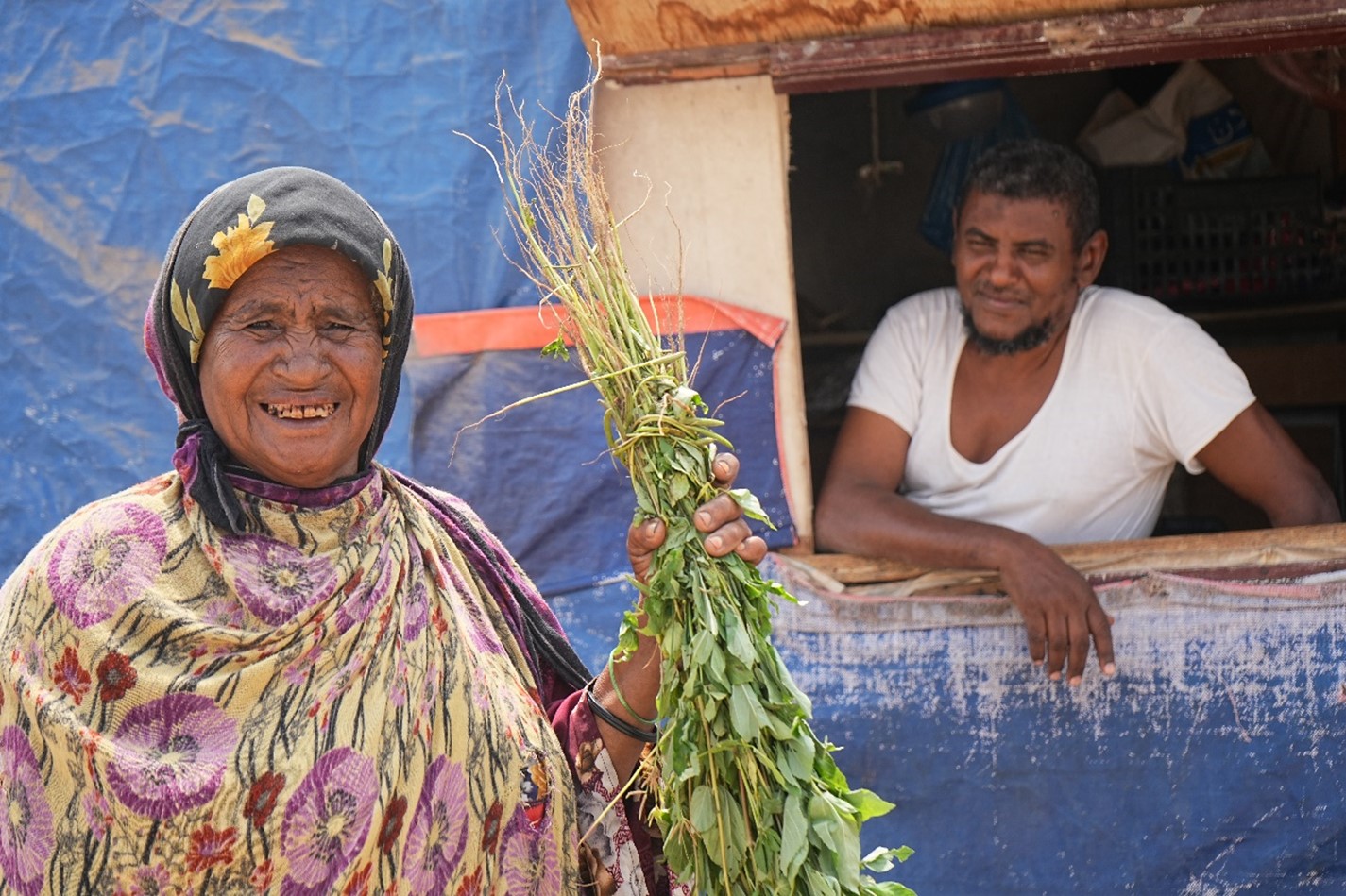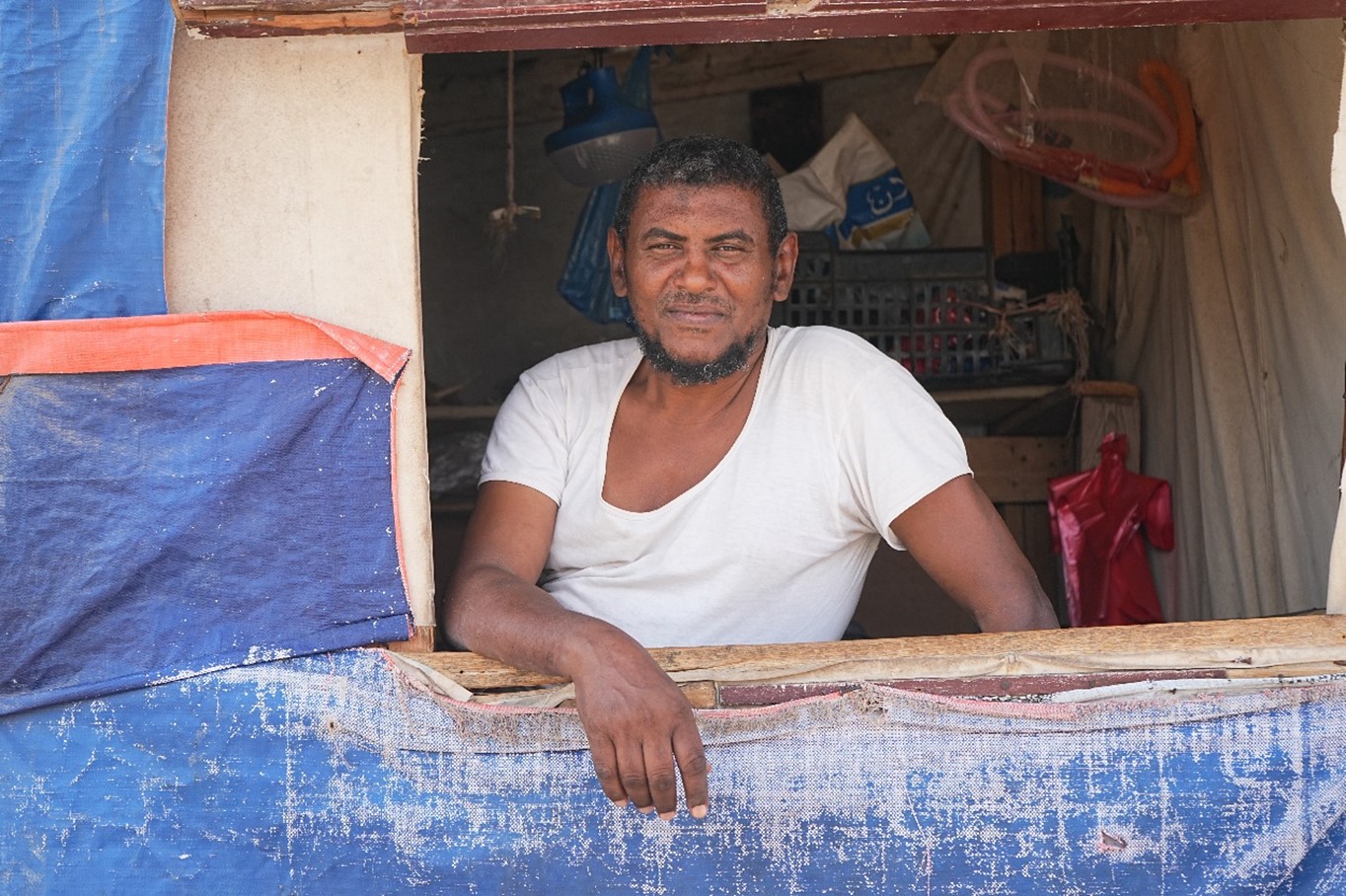“The war has destroyed everything beautiful in my hometown,” says Salem Jaber, a 49-year-old father of nine children – seven sons and two daughters. “I used to have a calm life in Al-Hodeidah Governorate, where I worked selling poultry to provide for my family. One night in 2015, fighting broke out suddenly in my area, and it was raining with bullets and shells on my house. Four of my children were hit by shrapnel, one of whom now suffers from a mobility disability because a shrapnel hit his leg. It was the worst night of my life. That night, I decided to flee for my children’s lives. We moved to Aden Governorate and joined other displaced families in the camp in the Al-Shaab area.”
Although displacement may provide relative safety away from fighting, fleeing can have serious consequences and hardships. Displacement journeys are challenging and distressing experiences for individuals and families. Leaving one’s home, community, and support systems and losing livelihoods and education opportunities can have long-term consequences for families and communities. Internally displaced people (IDPs) require support to meet their basic needs, such as accessing food, water, shelter, and livelihood.
“After settling in the camp, I started to look for work to buy food and other necessities for my children,” says Salem. “I worked in a small shop near the camp selling poultry. I used to work in the shop from early morning to evening to earn very little money that could secure one meal a day for my family. As food prices skyrocketed, I became anxious and exhausted. I eventually started to suffer from insomnia. In a blink of an eye, I became homeless and unable to feed my children.”

